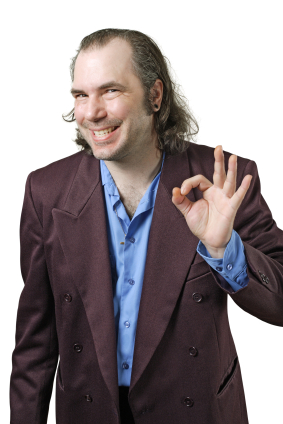I remember when I got my first computer, a Texas Instrument 99/4A. My dad got it for me for Christmas (I was a poor student then) for about $125 when TI was getting out of the computer business. It must have been in 1982 or 1983. Here’s a picture:
As you can see, it’s just a CPU with an attached-keyboard. I hooked it up to a 10-inch black and white TV and a standard tape recorder, so I could save stuff, and bought an Advanced C programing cartridge that plugged into the port on the upper right of the computer.
Learning to program on that little computer became my hobby. I wrote a program that simulated a basketball game. I bought a book that listed basketball statistics for the prior year, plugged the data into the program, and played ball. I had a blast but my wife didn't like it because I spent so much time on it.
But, that wasn’t my first experience with computers. While attending junior college in 1976 I took a “computer programming” class. All I can remember is lining up punch cards that got fed into a "computer." Ancient of days.
Then, in professional school, around 1984, I bought a PC with a twenty megabyte hard. Yes, you read that right. Megabyte, not gigabyte. I paid for it with student loan money and as I recall it cost about $1,200. I might be wrong. I remember debating getting the PC or a Mac. The Mac was cool looking but cost too much for my student budget and had only like an eight-inch screen. I bought the PC from a guy who put them together in a storage locker. Here’s what the IBM PCs looked like back then (mine was nowhere as fancy):
It had a 5¼-inch floppy disc drive and an amber monitor, which sat atop the gray metal box that held the computer’s guts. I had to have a printer, of course, so I picked up a Panasonic dot matrix printer with a box of pin-feed paper. It might have looked a little like this one, except I don’t remember it having so many buttons on the front:
The computer ran on DOS but I remember when my brother-in-law gave me a copy of Windows, I think version 1.2, on a floppy disc. I was fascinated by the graphical OS but it ran so slow it was useless to me.
I used that computer until I went into practice for myself. When I started making a little money, I updated my own computer as well as the billing computer. The next computer I got was a Packard Bell, from Costco, which had just opened up in town. That was about 1991. I used the PB until it broke.
Next up was an all-in-one computer from a local store, in 1998. I needed something portable but didn’t want to shell out for the still-high price of a decent laptop. It had an LCD screen and ran Windows 95, and was one of the most reliable computers I’ve ever owned. It was fast, for those days, portable enough to take on the road when I did out-of-town treatments, and even had a USB port. I just barely threw that computer away.
The company I bought it from offered lifetime free labor. And they came through. They actually replaced my hard drive two years after I had bought the computer, a year out of warranty, for free. The guy who owned the store ran a bang-up business. He sold out to a guy who looted the business’s assets before fleeing to China.
Next was a Dell desktop I still own, running Windows XP. The fan has gotten loud but it’s served me well. I love the Dell keyboard from that time, about 2004. It has a nice click feeling.
After the Dell was an Acer laptop. I wrote most of my second book, THE MIGHTY T, on that computer. I still have it but haven’t turned it on for a few months. The WiFi hardly works and I somehow damaged the “V” key.
I purchased a Dell laptop running Windows 7 from Costco last October because the Acer doesn’t have enough horsepower to run my new testing software. And, there was the broken “V” key. I liked Windows 7, though I thought XP is easier to use. Probably because I used it for years. I sold that laptop with my testing hardware and software to an acupuncturist this month.
And now I have a 27" iMac. Yes, I’m now a Mac guy. And I’m loving it.
It’s been fun, this trip down memory lane, but it has to come to a close now. On my next post I’ll write about my current computer and writing setup.








